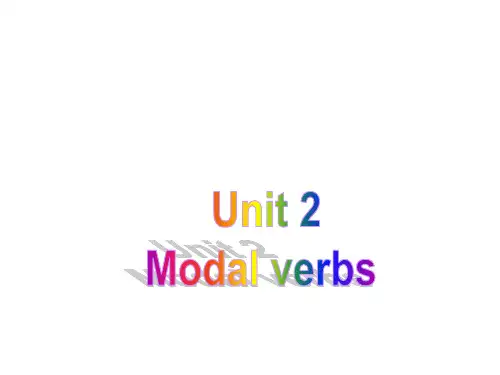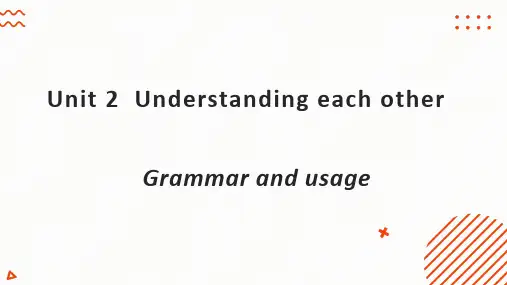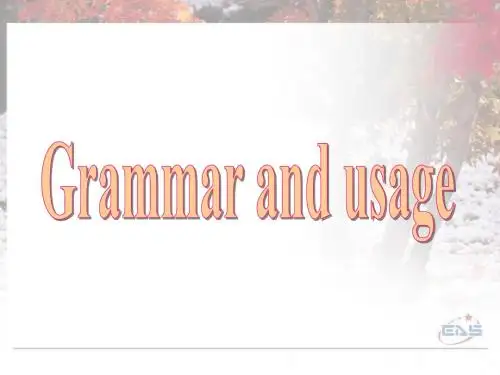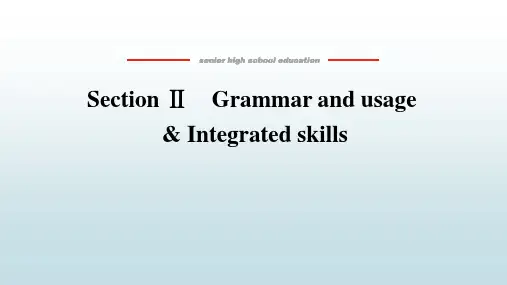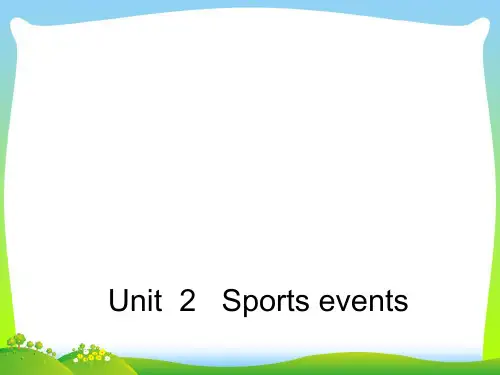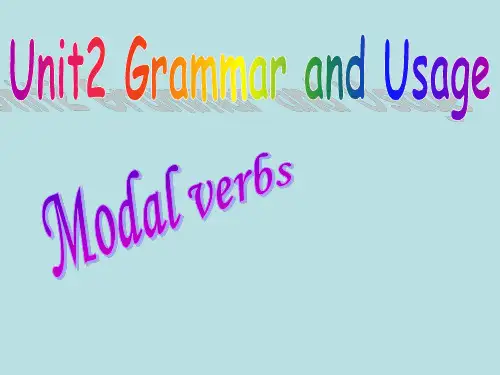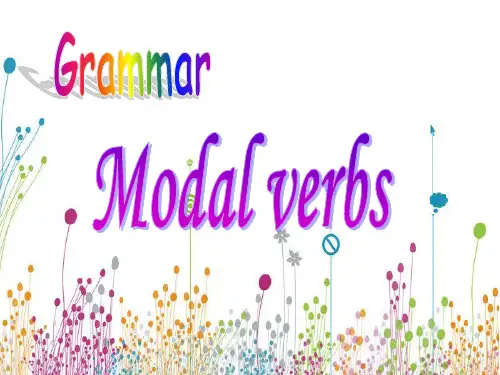情态动词:
can (could), may (might), must (must), have to, shall (should), will (would), need等。
情态动词的特征:
有一定的词义,但不能单独作谓语, 他们要和行为动词或连系动词连用, 构成谓语。
没有人称和数的变化,主语是第三 人称单数时,情态动词的形式不发 生任何变化。
Unit 2 Sports Events (Grammar: 情态动词 period 1)
Can you help me? You mustn’t smoke here. We can go swimming in the park. ----- 情态动词
情态动词——
指它含有一定的含义,可以表示某 种感情和说话的口气,但是它不可 以单独做谓语动词。
e.g. May / Might I usห้องสมุดไป่ตู้ your pen? No, you mustn’t.
2. May I ...? 征求对方许可;问题上 较为正式,日常用语用can.
(1) 表示推测,可能(疑问句不能用 此意)
e.g. H e may be very busy now. (2) 用于祈使句表示祝愿 e.g.
Man cannot live without air.
Could 也可以表示请求。语气委婉。 主要用于疑问句,不可用于肯定句, 答语应用can, 即could不能用于现在 时态的简略答语中。
e.g. Could I come to see you tomorrow?
Yes, you can. / No, I am afraid not.
后面接动词原形,即不带to的不定 式(ought to, have to, used to)
